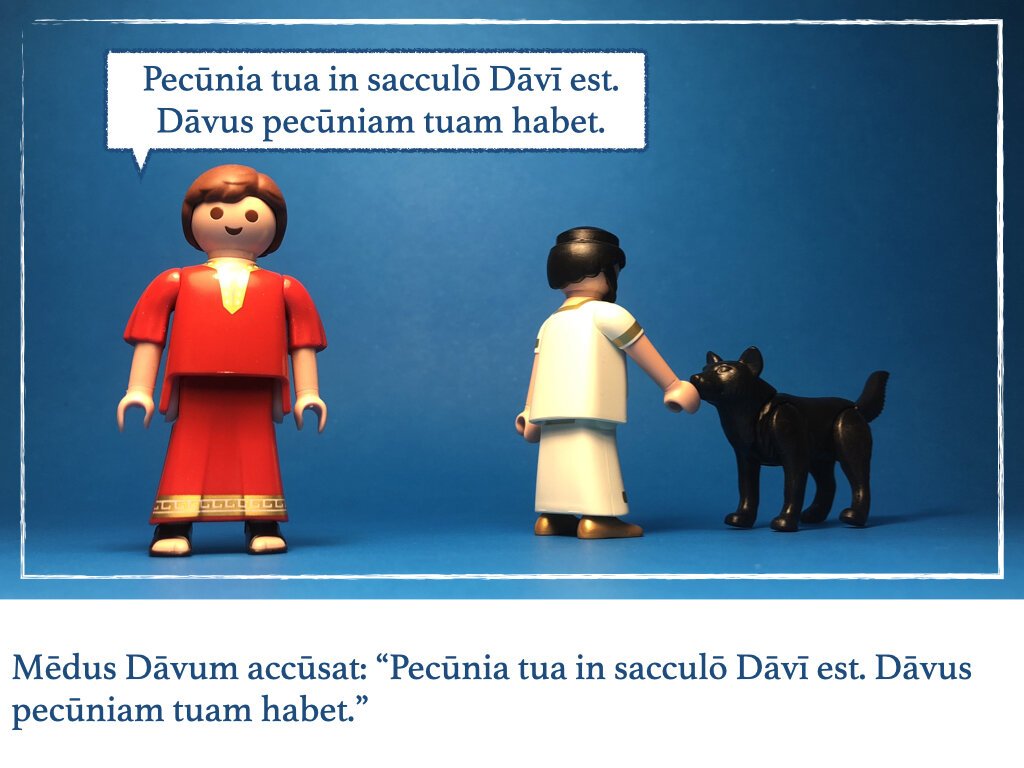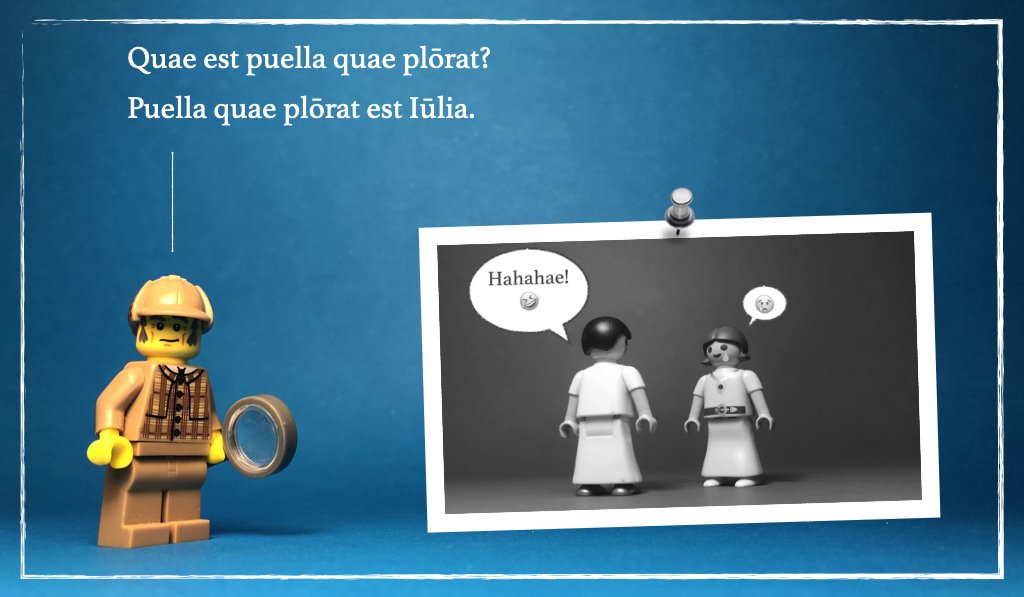Salvēte, sodālēs.
It’s time to stop and take stock of pronouns. Pronouns, as the name suggests, are words that can stand in for (pro) nouns. Let’s take a look at all of the pronouns that you have met so far, and a few that you haven’t met yet. One new word before we get started - cum, which means with.
It’s a lot to take in. If the sentences seem overwhelming, take a look at the table near the end of the lesson.
Masculine Singular Pronouns
Iūlius est vir Rōmānus. Julius is a Roman man. Is est vir Rōmānus. He is a Roman man.
Mārcus est fīlius Iūliī. Marcus is Julius’s son. Mārcus est fīlius eius. Marcus is his son.
Mārcus Iūlium vocat. Marcus calls Julius. Marcus eum vocat. Marcus calls him.
Iam Mārcus cum Iūliō est. Now Marcus is with Julius. Iam Mārcus cum eō est. Now Marcus is with him.
Masculine Plural Pronouns
Mēdus et Dāvus sunt virī Graecī. Medus and Davus are Greek men. Iī sunt virī Graecī. They are Greek men.
Iūlius est dominus virōrum. Julius is the master of the men. Iūlius est dominus eōrum. Julius is their master.
Iūlius vīrōs vocat. Julius calls the men. Iūlius eōs vocat. Julius calls them.
Iam Iūlius cum virīs est. Now Julius is with the men. Iam Iūlius cum eīs est. Now Julius is with them.
Feminine Singular Pronouns
Aemilia est fēmina Rōmāna. Aemilia is a Roman woman. Ea est fēmina Rōmāna. She is a Roman woman.
Mārcus est fīlius Aemiliae. Marcus is Aemilia’s son. Mārcus est fīlius eius. Marcus is her son.
Mārcus Aemiliam vocat. Marcus calls Aemilia. Marcus eam vocat. Marcus calls her.
Iam Mārcus cum Aemiliā est. Now Marcus is with Aemilia. Iam Mārcus cum eā est. Now Marcus is with her.
Feminine Plural Pronouns
Dēlia et Syra sunt fēminae Graecae. Delia and Syra are Greek women. Eae sunt fēminae Graecae. They are Greek women.
Iūlius est dominus fēminārum. Julius is the master of the women. Iūlius est dominus eārum. Julius is their master.
Iūlius fēminās vocat. Julius calls the women. Iūlius eās vocat. Julius calls them.
Iam Iūlius cum fēminīs est. Now Julius is with the women. Iam Iūlius cum eīs est. Now Julius is with them.
Neuter Singular Pronouns
Brundisium est oppidum Rōmānum. Brundisium is a Roman town. Id est oppidum Rōmānum. It is a Roman town.
Brūtus est dux oppidī. Brutus is the town’s leader. Brūtus est dux eius. Brutus is its leader.
Brūtus oppidum amat. Brūtus loves the town. Brūtus id amat. Brūtus loves it.
Nonnumquam Brūtus in oppidō habitat. Sometimes Brutus lives in the town. Nonnumquam Brūtus in eō habitat. Sometimes Brutus lives in it.
Neuter Plural Pronouns
Brundisium et Tūsculum sunt oppida Rōmāna. Brundisium et Tusculum are Roman towns. Ea sunt oppida Rōmāna. They are Roman towns.
Brūtus est dux oppidōrum. Brutus is the towns’ leader. Brūtus est dux eōrum. Brutus is their leader.
Brūtus oppida amat. Brūtus loves the towns. Brūtus ea amat. Brūtus loves them.
Nonnumquam Brūtus in oppidīs habitat. Sometimes Brutus lives in the towns. Nonnumquam Brūtus in eīs habitat. Sometimes Brutus lives in them.



























